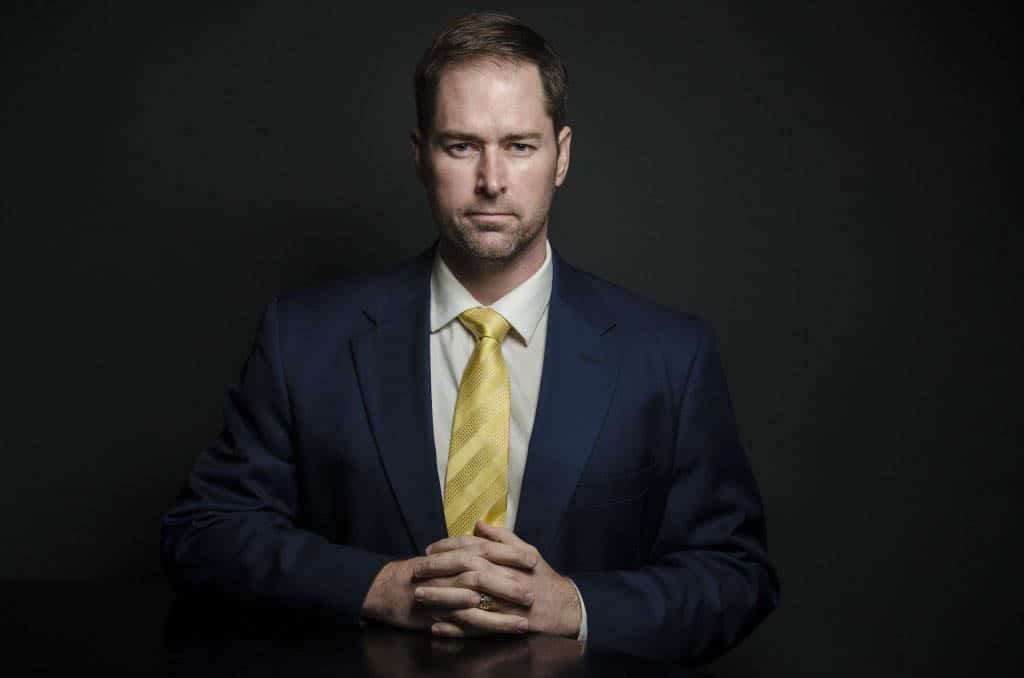Chapter 11 Bankruptcy Lawyers - Nick Davis Law
Chapter 11 Bankruptcy for IndividualsNick Davis Law helps individuals with significant debt navigate Chapter 11 bankruptcy, providing customized debt solutions while protecting personal assets.
Serving Montgomery, Harris, Fort Bend, Brazos, Grimes, Waller, Walker & Surrounding Counties
Chapter 11 Bankruptcy for High-Income Individuals: Restructure Debt Without Losing Assets in The Woodlands, Katy, Houston, College Station, Texas

At Nick Davis Law, we help you manage this process with care and precision, ensuring your assets remain protected and your financial life is rebuilt. Don’t let debt control your future—take the first step toward recovery with Chapter 11.
Don’t wait until it’s too late to act. Contact Nick Davis Law Bankruptcy Relief Lawyers today for a free consultation at (936) 262-7474 and assistance in filing for Bankruptcy in The Woodlands, Houston, Katy, and College Station.
High-Income Individuals Filing Chapter 11: Pros and Cons
Discover the benefits and challenges of filing for Chapter 11 as an individual, and find out if it’s the right fit for your financial situation.
High-income individuals face unique financial complexities—whether it’s managing real estate, navigating large investments, or juggling unsecured debt. Chapter 11 bankruptcy offers a lifeline by allowing you to reorganize debt while protecting key assets. However, it’s important to weigh both the advantages and potential drawbacks before making your decision.
Pros:
- Asset Retention: Unlike Chapter 7, Chapter 11 allows you to retain personal assets, including homes, investments, and luxury property.
- Debt Flexibility: Customize a repayment plan that meets your financial capacity without the immediate pressure of liquidation.
- No Debt Limits: Unlike Chapter 13, Chapter 11 does not impose strict debt ceilings, making it ideal for high-income earners with substantial debt.
Cons:
- Higher Filing Costs: Chapter 11 is more costly due to its complexity and duration.
- Longer Process: Chapter 11 can take months to years to complete, requiring ongoing reporting and court oversight.
- Court Supervision: As a debtor, you’ll be required to submit regular financial statements and updates throughout the bankruptcy.
Learn more about the pros and cons of Chapter 11 for high-income individuals. Wondering if Chapter 11 is right for you? Contact Nick Davis Law at (936) 262-7474 for personalized advice.
Debt Restructuring for Individuals vs. Chapter 7 or 13
Chapter 11 offers more flexibility for high-income individuals, but how does it compare to Chapter 7 and Chapter 13 bankruptcy?
Choosing the right bankruptcy chapter can be a challenge for high-income individuals. While Chapter 7 and Chapter 13 are more common for individuals, they may not offer the protection you need if you have significant assets. Chapter 11 offers a unique middle ground, allowing you to both protect your assets and restructure your debt.
Chapter 7 (Liquidation):
- Involves selling off non-exempt assets to pay creditors.
- Typically results in a faster discharge but may lead to the loss of valuable property.
Chapter 13 (Repayment Plan):
- Suited for individuals with regular income, but debt limits can disqualify high-income earners.
- Involves a 3-5 year repayment plan, with less flexibility than Chapter 11.
Chapter 11 (Reorganization):
- Allows for long-term, customized debt repayment plans.
- Retain ownership of assets such as homes, investments, and retirement accounts.
Compare the benefits of Chapter 11, 7, and 13 to determine which bankruptcy option fits your situation. Need help choosing the right bankruptcy path? Contact Nick Davis Law at (936) 262-7474 for expert guidance.
OVERVIEW OF CHAPTER 11
FILING FOR CHAPTER 11 BANKRUPTCY
CHAPTER 11 FOR BUSINESSES
CHAPTER 11 FOR INDIVIDUALS
DEVELOPING A CHAPTER 11 REORGANIZATION PLAN
DEALING WITH CREDITORS IN CHAPTER 11
MANAGING ASSETS AND OPERATIONS DURING CHAPTER 11
BANKRUPTCY LITIGATION
ADDITIONAL BANKRUPTCY PRACTICE AREAS
EXITING CHAPTER 11 BANKRUPTCY
ALTERNATIVES TO BANKRUPTCY
SPECIAL CHAPTER 11 TOPICS
Personal Asset Protection in Chapter 11
Protecting Your Personal Assets in Chapter 11: What You Need to Know
Chapter 11 bankruptcy offers high-income individuals a way to keep valuable assets while managing debt. Here’s how to ensure maximum protection.
One of the most significant advantages of Chapter 11 bankruptcy is the ability to protect personal assets, such as your home, investments, and luxury items. While Chapter 7 requires the liquidation of non-exempt assets, Chapter 11 allows individuals to retain these valuable properties while developing a repayment plan.
At Nick Davis Law, we specialize in protecting what matters most to you. Our team ensures that your reorganization plan maximizes asset protection, allowing you to keep your wealth while paying off debts.
Assets You Can Protect Under Chapter 11:
- Real Estate: Keep ownership of your primary residence and investment properties.
- Retirement Accounts and Investments: Safeguard your future by protecting retirement savings and financial investments.
- Luxury Items: Retain valuable personal property, such as vehicles, art, and jewelry.
Learn more about how Chapter 11 can help protect your most valuable assets. Concerned about losing your assets? Contact Nick Davis Law at (936) 262-7474 to discuss how we can protect your property during bankruptcy.
Paying Off Debt Over Time Under Chapter 11 Reorganization
Paying Off Debt Over Time: How Chapter 11’s Flexible Repayment Plans Work
Chapter 11 bankruptcy allows individuals to restructure their debts into manageable payments over time. Here’s how it works.
One of the core benefits of Chapter 11 bankruptcy for individuals is the ability to create a repayment plan that suits your financial situation. Rather than liquidating assets, you can negotiate new terms with creditors, lowering interest rates, extending payment periods, or even reducing the total amount owed.
The repayment plan is tailored to your specific circumstances and must be approved by the court. Once the plan is in place, you can make manageable payments over several years while retaining your assets.
Key Elements of a Chapter 11 Repayment Plan:
- Negotiated Terms with Creditors: Work with creditors to reduce debt amounts, lower interest rates, or extend repayment schedules.
- Court Approval: The bankruptcy court must approve the plan, ensuring that it’s fair to both you and your creditors.
- Payment Over Time: Repay your debts over a period of 3-5 years or longer, depending on your financial situation.
Find out how Chapter 11’s flexible repayment plans can help you manage your debt over time. Ready to create a manageable debt repayment plan? Contact Nick Davis Law at (936) 262-7474 for a free consultation.
FAQ
Frequently Asked Questions
Can Chapter 11 bankruptcy help me if I have significant investment properties?
Yes, Chapter 11 is particularly helpful for individuals who own multiple investment properties and are facing financial challenges. Unlike Chapter 13, which has debt limits, Chapter 11 allows you to restructure debts on high-value assets such as real estate portfolios. You can propose a reorganization plan that prioritizes keeping your most profitable properties, renegotiates mortgage terms, and potentially sells off underperforming ones. This flexibility helps high-net-worth individuals manage complex real estate holdings without losing their entire portfolio.
How does Chapter 11 bankruptcy affect personal expenses like child support or alimony?
Child support and alimony obligations are considered priority debts and cannot be discharged in Chapter 11 bankruptcy. You must continue making payments on these obligations, and they cannot be reduced through the reorganization process. However, if you have other substantial debts (such as business loans or mortgages), Chapter 11 can help you restructure those obligations, freeing up more resources to meet your child support or alimony commitments. Additionally, the bankruptcy court will expect full disclosure of these obligations when crafting a feasible repayment plan.
Can I file for Chapter 11 if I am self-employed or own a sole proprietorship?
Yes, Chapter 11 is often the best option for self-employed individuals or sole proprietors facing overwhelming debt. Unlike Chapter 13, which is focused on wage earners, Chapter 11 allows more flexibility in reorganizing both personal and business debts. If your personal finances are closely tied to your business, Chapter 11 enables you to restructure business obligations, renegotiate contracts, and retain assets critical to your livelihood, all while creating a plan to repay creditors over time. This is crucial for protecting both personal and business interests during financial restructuring.
How does Chapter 11 bankruptcy impact my retirement savings and accounts?
Most retirement accounts, such as 401(k)s, IRAs, and pension plans, are protected from creditors in Chapter 11 bankruptcy. These funds are generally exempt under federal and state bankruptcy laws, meaning you can keep your retirement savings intact while reorganizing your other debts. However, any withdrawals from these accounts prior to filing could be subject to scrutiny, and the court may limit how you use retirement income to repay creditors. It’s essential to work with your attorney to understand how to best protect your retirement while navigating the Chapter 11 process.
What happens to secured debts like my mortgage or car loan in Chapter 11?
Secured debts, such as mortgages or car loans, can be restructured in Chapter 11, allowing you to renegotiate payment terms, lower interest rates, or extend repayment periods. This flexibility can help you keep high-value assets while adjusting monthly payments to a more manageable level. In some cases, you may also be able to “cram down” certain secured debts, meaning you reduce the loan balance to the current market value of the collateral. This is particularly useful for individuals whose property values have declined since taking on the original loan.
How will Chapter 11 bankruptcy affect my personal credit score?
Filing for Chapter 11 bankruptcy will negatively impact your credit score, and the bankruptcy will remain on your credit report for up to 10 years. However, many individuals find that their credit score improves over time as they successfully complete their repayment plan and eliminate large amounts of debt. Additionally, creditors may view Chapter 11 as a sign that you’re taking responsible steps to address financial problems, which can make it easier to rebuild credit after the bankruptcy is finalized. It’s important to work on rebuilding your credit post-bankruptcy by making timely payments and managing new credit responsibly.
Can I modify my Chapter 11 repayment plan if my financial situation changes?
Yes, Chapter 11 repayment plans can be modified if your financial circumstances change, whether positively or negatively. If you experience a significant increase in income or receive a windfall, you may need to increase payments to your creditors. Conversely, if you suffer a loss of income or unexpected expenses, you can petition the court to modify your plan to lower payments or extend the repayment period. Working closely with your attorney ensures that any changes to your plan are handled properly and approved by the court.
What happens if I fail to make payments under my Chapter 11 reorganization plan?
If you fail to make payments as outlined in your Chapter 11 plan, creditors can petition the court to either enforce the plan or convert the case to Chapter 7, which could result in liquidation of your assets. It’s important to stay on top of your financial obligations and maintain open communication with your attorney if you’re struggling to make payments. In some cases, you may be able to negotiate a modification of the plan to make payments more manageable or seek a temporary suspension if you’re facing short-term financial difficulties.
How does Chapter 11 bankruptcy handle debts incurred through lawsuits or judgments?
Certain debts arising from lawsuits or judgments, such as personal injury claims or breach of contract judgments, may be included in your Chapter 11 bankruptcy plan and restructured. However, debts related to fraud, criminal activity, or willful and malicious injury are typically non-dischargeable and must still be paid. If you have significant legal judgments against you, it’s important to disclose these to your attorney so they can be properly addressed in your reorganization plan. In many cases, Chapter 11 can provide relief by allowing you to settle these claims through manageable payments over time.
How will Chapter 11 bankruptcy affect co-owned assets or jointly-held property?
If you own property jointly with a spouse, family member, or business partner, Chapter 11 bankruptcy can complicate how these assets are treated. Your share of the asset will be included in the bankruptcy estate, but the other owner’s share may be protected. This can impact decisions related to selling or restructuring the asset. It’s essential to carefully assess how jointly-held property fits into your reorganization plan, and you may need to negotiate with co-owners or buy out their share to keep the asset. Your attorney can help you navigate these complex situations to avoid unintended consequences.
From the Blog
Recent Articles
Take Control of Your Financial Future Today
FLEXIBLE APPOINTMENTS | PAYMENT PLANS
At Nick Davis Law, we understand that bankruptcy is a complex and emotional process. Whether you’re an individual facing overwhelming personal debt or a business looking to restructure, we’re determined to guide you through every step. Bankruptcy is not the end—it’s the beginning of a new, more secure financial future.
Get a Free Consultation Now
Contact Nick Davis Law, serving The Woodlands, Katy, Houston, College Station and surrounding cities and counties. Take control of your financial future today—call us at (936) 262-7474. Our Montgomery, Harris, Fort Bend, Walker, Brazos, Grimes, Waller County Bankruptcy Lawyers regularly offer After-Hour & Weekend Phone and Virtual Consults and Payment Plans.
Contact us
Nick Davis Law
26418 Oak Ridge Dr.
The Woodlands, TX 77380
(936) 262-7474
The Woodlands, Texas
26418 Oak Ridge Dr.
The Woodlands, TX 77380
(936) 262-7474
Appointments Only
Bryan | College Station, Texas
750 William D. Fitch Pkwy, Ste 210
College Station, TX 778455
(979) 417-2220
Business Hours
Mon - Fri 8:00 am to 6:00 pm
Our Mission
The Trusted Family, Divorce, Bankruptcy, CPS, and Small Business Lawyers at Nick Davis Law are dedicated to providing the best and most efficient representation possible to our clients to achieve their goals quickly and cost effectively. Nick Davis Law maintain offices in The Woodlands, Katy, Texas and Bryan | College Station and serve all of Montgomery County, Brazos County, Walker County, Waller County, Grimes County, Washington County, Burleson County, San Jacinto County, Liberty County, Harris County, and surrounding counties.

 Nick Davis Law is a firm dedicated to helping individuals with all their family law needs and serves Montgomery, Harris, Waller, Grimes, Walker, Brazos, Washington, Burleson, Fort Bend and surrounding counties.
Nick Davis Law is a firm dedicated to helping individuals with all their family law needs and serves Montgomery, Harris, Waller, Grimes, Walker, Brazos, Washington, Burleson, Fort Bend and surrounding counties. 
